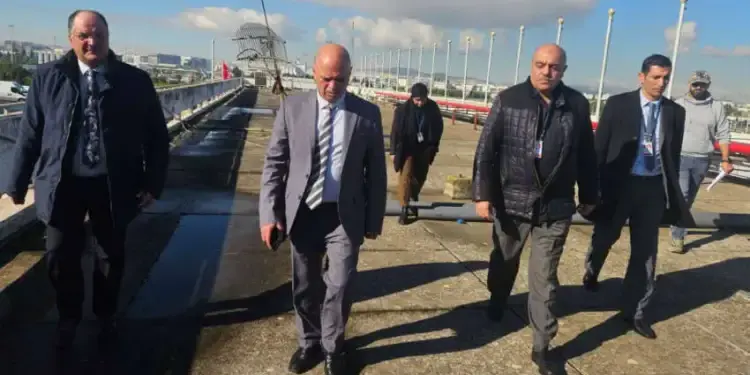The fate of Tunis-Carthage International Airport is now set. After years of speculation, technical reports and contradictory announcements on a possible displacement or a major extension, the President of the Republic has ended the suspense: the airport will remain at its current location.
This announcement, made yesterday, definitively buried the idea of a transfer of the airport to a less urban area, as had been envisaged by several successive governments for more than a decade. The saturation of the infrastructure, landlocked in the heart of a dense urban fabric, had nevertheless fueled the debate on its relocation.
Some experts plead for an ambitious solution: to build a new international airport far from the center of Tunis, in an area better connected to the country’s development axes.
Tunis-Carthage, the country’s main airport, concentrates a large part of the national air traffic. Built in the 1940s, it struggles to meet the requirements of modern traffic, both in terms of capacity and logistics. In 2023, he hosted more than 6 million passengers, bordering on his operational limits.
A political and symbolic decision
The site is often pointed out for its delays, its reception difficulties and its limited expansion possibilities because of its immediate proximity to the city. Successive reports had mentioned the impossibility of expanding the tracks or developing freight areas, without causing heavy urban or environmental consequences.
“Tunis-Carthage airport will not be moved,” said the head of state. For supporters of maintenance, this decision is perceived as a way of preserving the history and symbolism of the place, the gateway to the capital and the State. But it also arouses questions about the future of air flow management and the country’s long -term vision in terms of transport infrastructure.
And now ?
Maintaining the airport to its current position requires authorities to consider heavy rehabilitation work. A modernization of terminals, strengthening ground services, and better connection with urban transport networks are now essential priorities. In the absence of a new airport, it is all the logistics around Tunis-Carthage that will have to be rethought to avoid asphyxiation.
This announcement comes as Tunisia seeks to relaunch its tourist and economic attractiveness. If some see it as a pragmatic choice given the country’s budgetary constraints, others regret a lack of vision for the decades to come.








